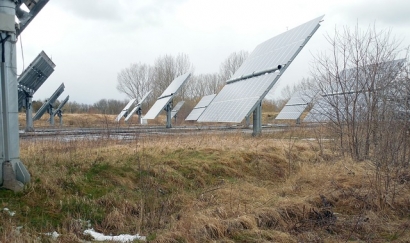
A widespread misconception is that solar panels are hardly effective during the winter season. Although it is true that the energy output of solar panels is at its peak when exposed to direct sunlight and UV rays, the temperature does not play a large role in the solar panel’s overall performance.
Believe it or not, but the cold weather can be beneficial when it comes to the production of energy given off by solar panels. Solar panels are essentially another electronic device, much like computers, radios, or household appliances. Just like any electronic device, they function more efficiently in cold weather conditions compared to hotter temperatures.
The winter months can also be the best time to install solar panels for home or business owners from an economic standpoint. The demand for solar panel installation is often at its lowest point during the cold winter months. However, the standard lower cost during the winter will undoubtedly attract a decent audience. Although the colder temperatures are not harmful to the solar panels themselves, it is important to be aware of the effect of cold weather on concrete if the base of the solar panels will need to be placed directly in the ground in front of a residence or commercial building.
Although cold weather will not have a negative impact on a solar panel’s performance, other factors such as snowfall could influence the total level of energy production. Even if you live in a region where snow is expected each winter, that doesn’t mean a solar panel won’t be effective. In fact, there are many cold weather climates where solar panels are quite popular. Ultimately the total impact will come down to the amount of snow that has accumulated on top of the solar panel. A light dusting of snow will not cause any significant disruptions as the sun’s UV rays can still penetrate through a small amount of snow until the wind clears off the panels.
Although the solar panels will usually handle the weight of heavier snowfalls, the production level may decrease if too much snow builds up. Solar panels are built at an angle to optimize for the intake of the sun’s UV rays, which also helps to reduce snow build up as the majority of snow can slide off or be easily removed. Many solar panels are installed with large frames around the edge, which can result in a larger accumulation of snow. If you live in a cold weather climate where snowfall is inevitable, it may be worth installing a solar panel without frames.
It’s no secret that the amount of daylight on a given day during the winter is a lot shorter than during the summertime. Although this does reduce the amount of time a solar panel is working at full efficiency, the amount of sunlight available in most regions is more than enough to make it worth the while. Similarly, with cloudy days, a solar panel is operating at a reduced efficiency, given that it is not under the contact of direct sunlight. However, the important thing to remember is the amount of sun that the panel will be exposed to throughout the year as a whole rather than on a given day.
When installing solar panels during the winter months, it is important to view it as an investment to reduce the overall energy consumption throughout the year. Even with the potential of a solar panel running at a reduced efficiency due to inclement weather and lack of sunlight, there is still a high demand for solar panel installation during the winter.
Emily Folk grew up in a small town in Pennsylvania. She has a passion for ecology and conservation and sustainability.
In high school, she discovered her other passion: writing. After graduating with a degree in Professional Writing, the most natural step seemed to be combining the two passions in one forum. Her goal is to help people become more informed about the world and how we fit into it.
Her website is Conservation Folks

